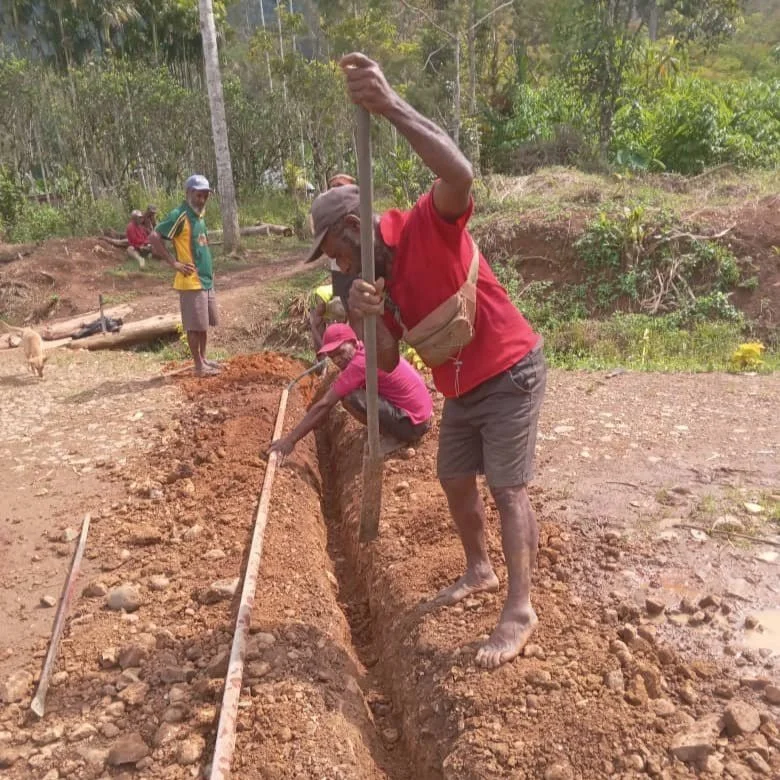Responding to community needs in PNG
By Vincent Korowa, Monitoring Evaluation and Learning Officer, Baptist Union PNG
Community members digging the water pipe trench that runs in to the village. IMAGE: Vincent Korowa/Baptist Union PNG
For the past six years, John Peng has served as a pastor for a small congregation in the Western Highlands province, Papua New Guinea. John is passionate about helping others, and alongside his wife Cathy, who is also leader in the congregation, John has played a significant role in mobilising their community, especially people with disabilities and young individuals, to participate in a community Water, Sanitation, and Hygiene (WASH) project, made possible by the Australian government through the AHP’s Disaster READY program.
John’s community is home to over 1,500 residents, with approximately 250 households. Previously, the community faced numerous challenges during the dry season, which typically occurs between July and December every two to three years and can last for more than six months. The scarcity of water often led to a rise in diseases, with a major outbreak of typhoid causing the loss of many lives. Since John arrived in the community six years ago, he has witnessed eight deaths from people drinking contaminated water from a nearby source. Additionally, women, children, and the elderly had to travel long distances to fetch clean water, exposing them to various risks.
Pastor John reached out to the Disaster Risk Reduction team at the Baptist Union headquarters in PNG for assistance, and they promptly responded. The team helped the community establish a mini water storage dam, set up a water tank for distribution, and installed twelve water taps.
As a result of the project, there have been no reported cases of typhoid in the community, bringing relief to the elderly residents. "In the past, our community faced numerous challenges due to the high risk of waterborne diseases like typhoid, stemming from contaminated water sources,” John said. “There were even disputes over water usage, especially when children wasted the limited clean water available."
One woman from his community expressed her gratitude, saying, "I wish such a project had been implemented many years ago. I used to spend a lot of time fetching water from afar, but now, thanks to this project, I can easily access clean water for drinking and cooking." The project also benefitted the local school, as children no longer had to be sent home early due to water shortages.
This impactful project was made possible through the support of the Australian Government, as part of the Church Agency Network Disaster Operation (CANDO) under the Australia Humanitarian Partnership program.


